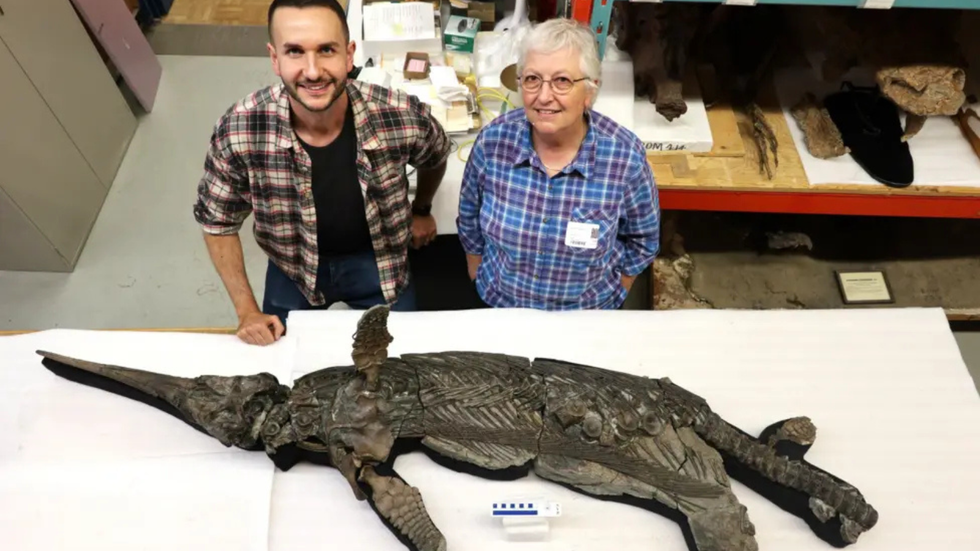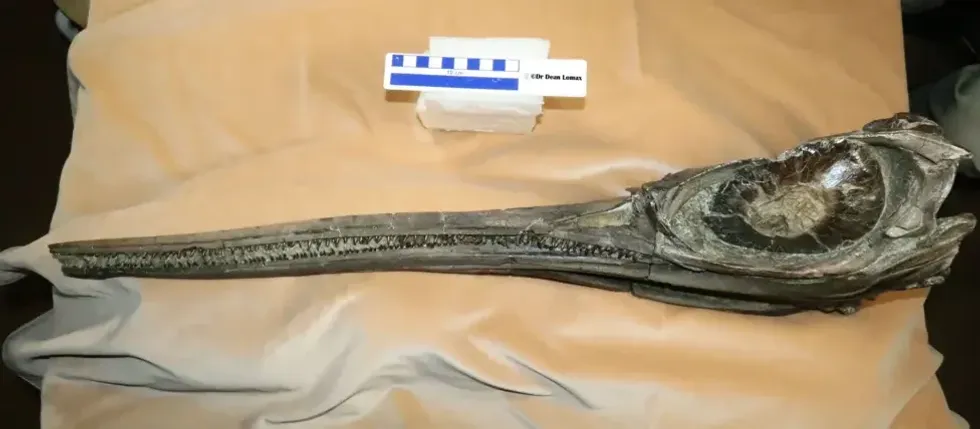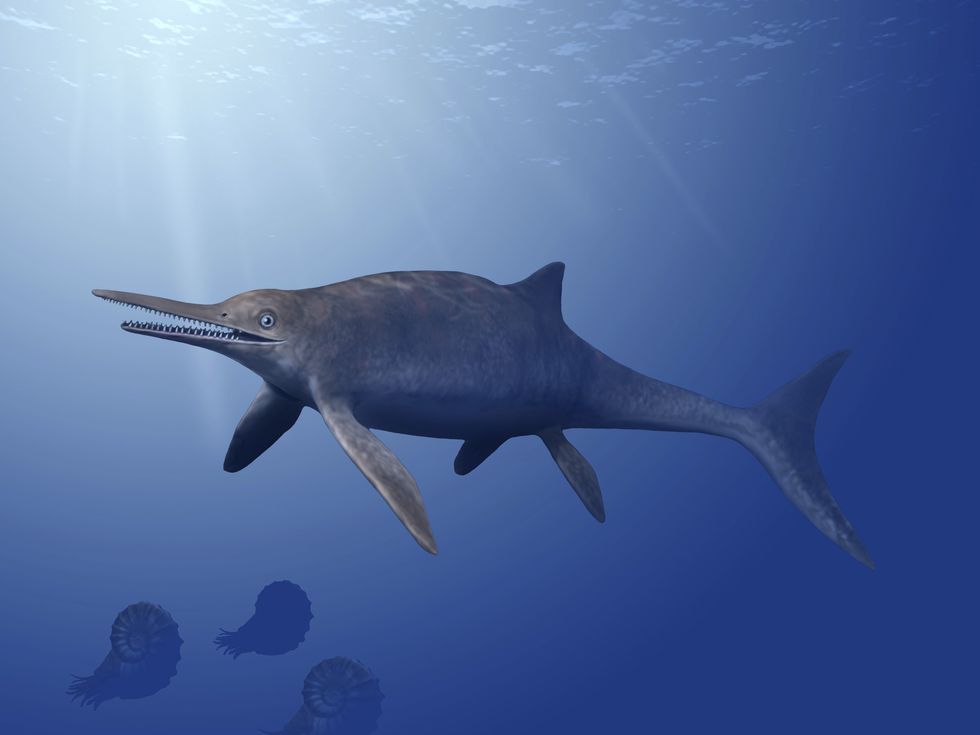Dorset coast fossil identified as new 'sword dragon' species

WATCH: Mind-Blowing Archaeological Discoveries That Bring History Back to Life
|GB NEWS
The groundbreaking discovery has been branded 'a world first' by scientists
Don't Miss
Most Read
A previously unknown species of ancient marine reptile has been identified from an almost complete skeleton found on Dorset’s Jurassic Coast.
The dolphin-sized reptile has been named Xiphodracon goldencapensis, or the “sword dragon of Dorset", and is the only example of its kind known to science.
Researchers have said that damage to the skull suggests the creature may have been killed by a bite from a much larger ichthyosaur.
The fossil was originally discovered in 2001 at Golden Cap, Dorset, by an experienced fossil hunter and later became part of a Canadian museum collection.

The dolphin-sized reptile has been named Xiphodracon goldencapensis, or the 'sword dragon of Dorset'
|DEAN LOMAX
TRENDING
Stories
Videos
Your Say
It has only recently undergone detailed analysis, leading to the publication of a study officially recognising it as a new species.
Study co-author, Dr Dean Lomax said: "I thought long and hard about the name.
"Xiphodracon translates to sword-like dragon and that is in reference to that very long, sword-like snout, but also the fact that ichthyosaurs have been referred to as sea dragons for about 200 years."
Ichthyosaurs were entirely distinct from the dinosaurs that roamed the Earth at the time, and were marine reptiles who lived entirely in the oceans.

Researchers have said that damage to the skull suggests the creature may have been killed by a bite
|DEAN LOMAX
The newly identified Xiphodracon is believed to have inhabited the oceans roughly 185 millions years ago, a time period from which scientists have recovered only a handful of ichthyosaur fossils.
Dr Lomax explained: "During this time ichthyosaurs are incredibly rare, and Xiphodracon is the most complete individual ever found from there, helping to fill a gap.
"It's a missing piece of the puzzle in the ichthyosaur evolution."
Study co-author Dr Erin Maxwell from Stuttgart's State Museum of Natural History said the remains offered clues as to how this Xiphodracon perished.
ARCHAEOLOGY BREAKTHROUGHS - READ MORE
Dr Maxwell said: "The limb bones and teeth are malformed in such a way that points to serious injury or disease while the animal was still alive.
"The skull appears to have been bitten by a large predator - likely another much larger species of ichthyosaur - giving us a cause of death for this individual."
The scientist added: "Life in the Mesozoic oceans was a dangerous prospect."
Fossils of ichthyosaurs have been uncovered around the globe over the past two centuries, including sites in England, southern Germany, Canada and the US.

Fossils of ichthyosaurs have been uncovered around the globe over the past two centuries
|GETTY
Researchers have labelled the uncovered "sword dragon" as likely "the world's most complete prehistoric reptile from the Pliensbachian period".
Dorset's Jurassic Coast is a designated World Heritage Site and spans between Exmouth in East Devon all the way to Studland Bay in Dorset.
The 95-mile stretch is believed to hold 185 million years of geological history from the Triassic, Cretaceous and Jurassic periods.
It was inscribed as a World Heritage Site by UNESCO in 2001 for the Outstanding Universal Value of the rocks, landforms and fossils found in the area.
Our Standards: The GB News Editorial Charter










